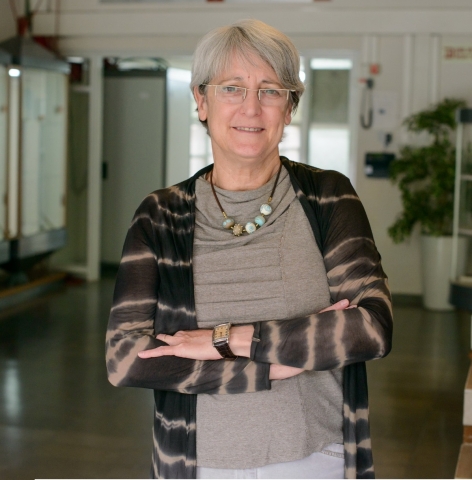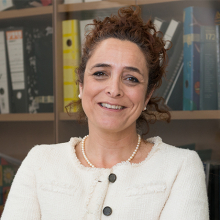The personalized classroom
What happens when technology and teachers meet?
Briefs

In the Internet age, teachers aren’t lacking topics or resources for the classroom. In fact, the vast amount of available information can often feel overwhelming. A new initiative of the Department of Science Teaching is attempting to help teachers separate pedagogical wheat from chaff—and ushering a new age of personalized teaching into the classroom.
The vision of the new interactive learning management system, called PeTeL (an acronym for Personalized Teaching and Learning) is to gather real-time data from individual students—during class—about what they know and do not know. Then, based on current knowledge about students’ misconceptions, the system will select personalized follow-up activities and homework assignments. In this way, PeTeL will enable teachers to tailor learning to each and every student, and often to groups of students in the same class who hold similar misconceptions. Much in the same way that personalized medicine integrates key datasets to advancing health, PeTeL is poised to advance classroom teaching and learning.
The system is currently being rolled out, with some elements already underway: some 40 physics teachers in Hebrew-speaking Israeli high schools are already utilizing PeTeL in their classrooms, and helping the PeTeL team at the Weizmann Institute continually develop and improve the system in preparation for a full implementation. When the rollout is complete, PeTeL will support the creation, delivery, and tracking of customized learning plans on a wide variety of advanced science-related subjects geared toward high school teaching and learning, supporting high school chemistry, biology and mathematics instruction, in Hebrew and Arabic.
“We expect PeTeL to be a powerful platform with the potential to benefit instructional settings and improve learning outcomes, throughout the world,” says Prof. Anat Yarden, who heads the Department of Science Teaching and is spearheading PeTeL.
Big data for schools
In the pilot, physics teachers can browse a range of digital textbooks, resources, interactive activities, and lesson plans uploaded by other instructors. Similar to an online shopping site, teachers can select the resources that best fit their needs and preferences, and then design a customized learning experience by modifying the items they choose.
The lessons are delivered to the students by the teacher using PeTeL’s digital platform, and class assignments are completed on individual electronic devices like smartphones, iPads, or laptops. Then the platform helps the teacher track the performance of individual students and provides real-time feedback.
At its heart is a system that will extract data from students’ performance and track their learning, and even apportion and grade homework online. That platform will build on an existing diagnostic approach already used in schools across Israel—and already implemented in the pilot—that helps teachers verify what their students know and how well lessons have been understood. It does this through diagnostic modules developed by experts in the Department of Science Teaching and teachers who participate in professional learning communities.
PeTeL will enable a continuous stream of communication between experts in the Department of Science Teaching and high school science and mathematics teachers—thereby creating an online community of educators who can seek advice from their peers, and share best practices and innovative ideas. They will be able to share their classroom success stories and upload original learning materials; every time a teacher will share material, it will become available to the entire online community.
“PeTeL will be an engine for producing more variegated and effective classroom experiences by promoting understanding of science and mathematics among more students in more schools,” says Prof. Yarden.
PeTeL is supported by Gideon Hamburger and the Henri Gutwirth Fund for Research.

Prof. Anat Yarden








